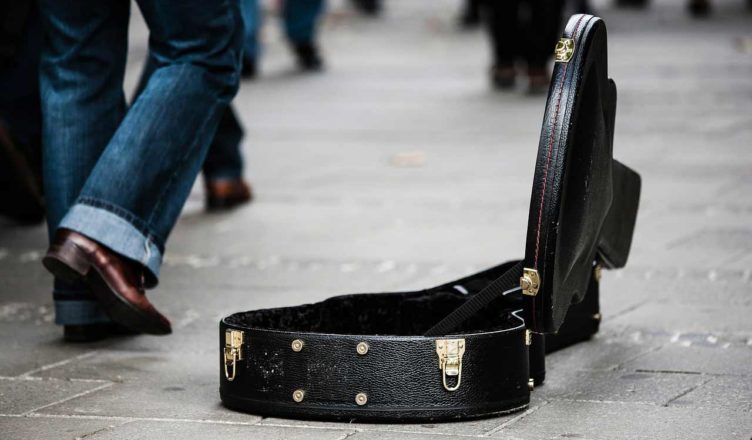If you’re currently enrolled in college, chances are that every so often (between the classes and the keg parties) you have a moment of silent clarity where you freak out about how much money you’re going to owe once you’ve graduated. For me, this actually happened right in the middle of a biology lab where I was dissecting a cow’s eyeball—which ended with vitreous fluid on my lab partner’s face. Awkward.
We all know that college is expensive and that most students need to take on substantial debt in order to graduate (an average of $37,173 per student), but there’s good news: Making even modest payments on your student loans while in college can substantially reduce the total amount you’ll pay over the life of the loan.
Need help keeping track of your student loans? Download our free Student Loan Spreadsheet!
While you’re in college, if you’ve got private loans or unsubsidized federal loans, your loans accrue interest (this isn’t the case for subsidized federal loans). Upon graduation, if you can’t afford to pay off this interest out right, it will be capitalized—added to your principal—which means you’ll have to pay interest on top of that interest. But if you can afford to pay off this interest before it is capitalized, you’ll save yourself a lot of money over the life of the loan. And if you can chip away at the principal while you’re at it then that’s even better.
So, without further ado, here are five ways that you can start paying off your student loans while you’re enrolled in college.
1. Apply any Federal Work Study funds to your college bill.
If you’re lucky enough to receive federal work study as a part of your student aid package, then you’re one step closer to being able to tackle your debt while in college.
Most students who receive work study will be entitled to around $1,500 and $1,800 each semester, which in addition to covering essential college costs can go a long way towards paying down accrued interest and principal. So make sure that you claim these funds if they’re offered to you: For as few as 12–15 hours per week you could give yourself a leg up on your classmates waiting until graduation to start paying their loans.
Then, as you get paid, make sure that you actually apply your work study money towards your student loans: You don’t want to blow it all on having a good time.
2. If you don’t have work study, consider getting a part time job.
Alas, everyone doesn’t qualify to receive federal work study, which may make finding a job a little trickier. But that doesn’t mean you should give up without even trying: Most colleges rely on student workers (with or without federal funding) to complete essential duties like working in dining halls and even completing office work.
If you strike out finding a job through your university, turn to the businesses in the area around your university. Chances are, you’ll be able to find a job this way. A friend of mine financed a good part of her college education by working as a waitress at an on-campus (but privately owned) restaurant.
Still striking out? You may need to get a little creative. Look for ways that you can offer your services to other students by tutoring or becoming a note taker. Or, if you’ve got an entrepreneurial spirit, try creating a freelance business (Fiverr can be great place to start, along with some other online forums).
3. If you receive any cash gifts, put them straight towards your debt.
I know, I know, you hate it when your parents pull out the birthday cake and sing for you. But there’s a positive side to this momentary discomfort: Gifts.
If your family regularly treats you to gifts on special occasions like birthdays and holidays, this is a great opportunity to pay down your debt. Just explain to your family that in lieu of presents, you would prefer cash that you can use to pay down your student loans. You’ll feel good knowing that you’ve made some progress (even with just a few hundred dollars), and your parents and other family members will marvel at how grown up and responsible you’ve become. They may even throw a little extra your way.
4. Apply any rebate check to your student loans.
Often, when you accept your student aid package you’ll be accepting more money than you’ll actually need to use to cover the costs of college. In these cases, at the end of the semester (or sometimes the end of the school year) your university will issue a rebate check to you. This rebate check will be for whatever money is left from your student aid package.
If you need to use these funds to cover essential college expenses (like textbooks or off-campus housing), then by all means use it. But if you don’t need the funds for college, your best bet is to apply it directly back to your student loans. This will in essence wipe debt off of your account, which is great. Don’t be like those college students who blow their rebate checks on spring break trips (or trips to the bar): You’ll just have to pay it back later, with interest.
5. Limit your college expenses as much as possible.
Okay, this isn’t a way to actually make money while in college, but it bears mentioning: Reducing your college expenses by any amount will lower the total amount of money that you’ll owe once you graduate. By doing things like taking winter and summer courses, living at home (or choosing less expensive on-campus housing), and renting textbooks, you’re saving yourself a lot of money in interest. Take every opportunity you can to save money.
How to Actually Make Your Student Loan Payments
If you’re enrolled in college and want to make a payment to cover accrued interest or to pay down principal, you have a few options. The easy way would be to go to your university’s bursar’s office and make a payment through them (they’ll usually handle the communication with your student loan servicer). The slightly more time-consuming way would be to call your student loan servicer on your own.
However you make your payments, just make sure that you get it done. Your future self will thank you more than you might think.







Yes! This is huge! Paying down debts while still in school is awesome!
Keeping interest from piling up is vital, and I love your ideas of taking advantage of “free money,” like work study, cash gifts, and rebates to knock out some debt – it’s an instant return on investment. Also really appreciate your advice on how to actually make the payments. Making paying on your loans a habit is really powerful, since you’re keeping track of what you’re actually owing, and then it’s easier to keep making the payments after graduation (before the interest capitalizes).
Definitely support getting a part-time job (or three) during school. The more on-campus jobs you have, the less commuting you have to do. Some on-campus jobs, like note-taking, mean getting paid for something you’re already doing, which is awesome. Some jobs can even be “stacked,” like using time between answering questions at the front desk in the student center to grade papers – get paid twice for the same amount of time! Epic!
I’m a big fan of finding jobs with extra earning potential through tips, shift differentials, or commissions, since you can earn more per hour on average that way (and time in college is more valuable than gold).
Great job on this one, Tim!